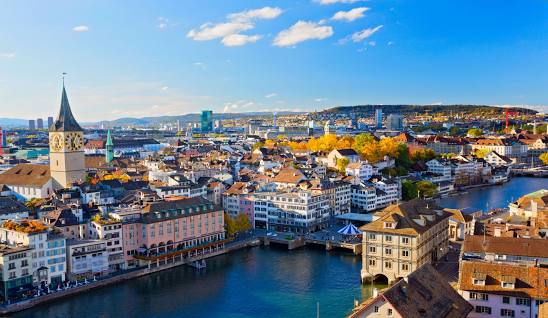Review of the Economist Most Expensive Cities
The Cost of Living Around the World: The Economist Most Expensive Cities
Every year, The Economist Intelligence Unit (EIU) releases its list of the world’s most expensive cities, offering valuable insights into the cost of living in major urban centers across the globe. This annual report is eagerly awaited by businesses, travelers, and policy-makers alike, as it helps shape decisions on everything from international investments to personal travel destinations. In this article, we’ll delve into the methodology behind The Economist’s rankings, explore the factors contributing to the cost of living in these cities, and shed light on some of the top-ranked expensive cities.
Methodology Behind The Economist’s Rankings
The Economist’s Worldwide Cost of Living survey is a comprehensive study that assesses the cost of living in cities around the world. The methodology behind the rankings takes into account a wide range of factors, including:

- Price Data Collection: EIU collects price data on over 400 individual items and services in each city, encompassing everything from groceries and clothing to rent and transportation. This extensive data collection ensures a nuanced understanding of the cost of living.
- Exchange Rates: Currency exchange rates are considered when comparing prices across cities, as fluctuations in exchange rates can significantly impact the cost of imported goods and services.
- Location Weighting: Different categories of goods and services are assigned varying weights to reflect their relative importance in the average person’s spending. For example, housing costs may be given a higher weighting than entertainment expenses.
- Basket of Goods: The survey employs a standardized basket of goods and services that represents an urban middle-class lifestyle, ensuring comparability across cities.
- Price Level Comparison: The cost of the basket in each city is compared to the cost in New York City, which serves as the baseline with an index score of 100. Cities with higher scores are considered more expensive, while those with lower scores are deemed cheaper.
Factors Contributing to High Costs in Expensive Cities

Several factors contribute to the high cost of living in the world’s most expensive cities:
- Housing Costs: Cities with limited space and high demand often have exorbitant housing costs. This includes high rents and property prices.
- Exchange Rates: Fluctuations in exchange rates can lead to varying prices for imported goods and services, impacting overall costs.
- Economic Prosperity: Prosperous cities tend to have higher costs of living due to increased demand for goods and services, as well as higher wages.
- Transportation: The cost of owning and maintaining a vehicle, as well as public transportation expenses, can significantly impact a city’s overall cost of living.
- Taxes: High-tax cities may have higher costs as taxes are factored into the prices of goods and services.
Top-Ranked Expensive Cities
While the rankings may vary from year to year, some cities consistently appear at the top of The Economist’s list of most expensive cities. As of the last available data:

- Singapore: Often topping the list, Singapore’s high cost of living is driven by its robust economy, expensive housing, and high transportation costs.
- Hong Kong: The financial hub of Asia, Hong Kong boasts one of the world’s most expensive property markets, contributing to its high overall cost of living.
- Zurich: Switzerland’s largest city, Zurich, is known for its high salaries, but it also has high living costs, particularly in housing and everyday items.
- Paris: The French capital, Paris, is renowned for its cultural attractions, but it comes at a price, with expensive dining, housing, and entertainment.
- Geneva: Geneva, another Swiss city, is often ranked as one of the world’s most expensive due to its high salaries, high rents, and the cost of everyday goods.
Conclusion on the Economist Most Expensive Cities
The Economist’s annual ranking of the world’s most expensive cities provides valuable insights into the global cost of living landscape. These rankings not only assist businesses and governments in making informed decisions but also guide travelers and expatriates in planning their international ventures. While living in an expensive city may come with its challenges, it’s important to remember that each city offers a unique set of opportunities and experiences that can outweigh the financial costs for those who choose to call them home.